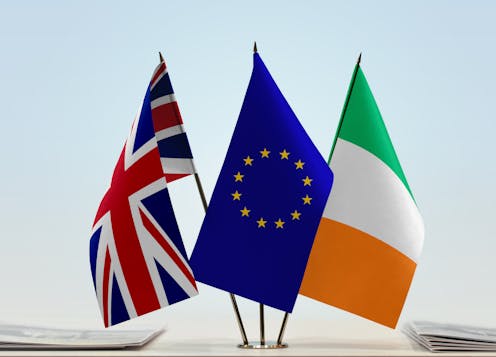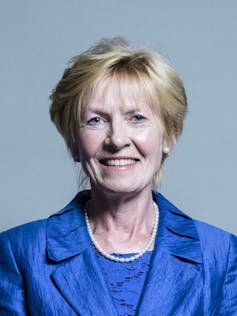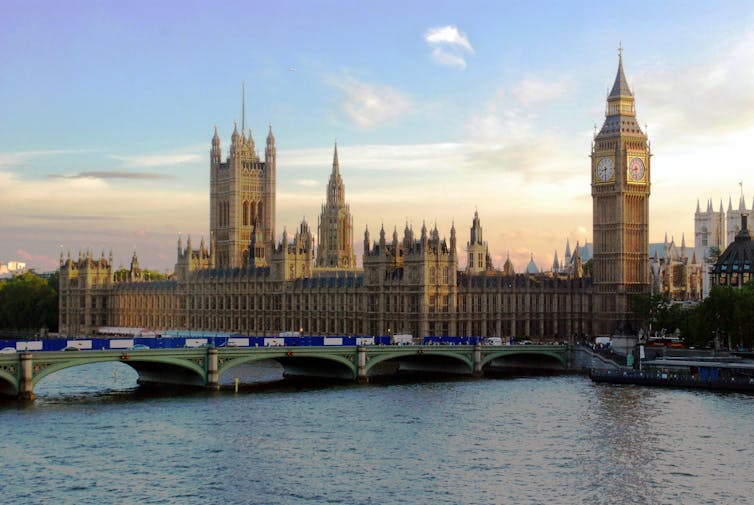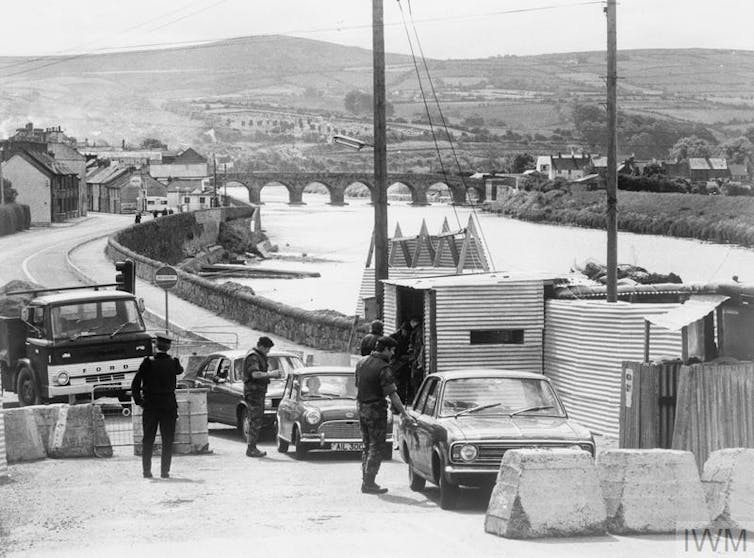Brexit poses a dilemma for Northern Ireland's nationalists
Politicians who want to unite Ireland under a Dublin-based government are stuck choosing whether to participate in the UK in an effort to stay in the EU.

Much of the mess around Brexit, the 2016 referendum decision by the people of the United Kingdom to leave the European Union, is tied up with Northern Ireland. Now the future may depend on a relatively few Northern Ireland politicians, in a situation so convoluted that it has brought bitter political enemies together.
Voters in Northern Ireland choose 18 members of the 650-member British Parliament, which sits in London. All 650 seats are up for grabs in a Dec. 12 nationwide election, which will choose the members of Parliament who will decide whether and how to go through with Brexit.
At present, 10 of the Northern Irish members of Parliament are from the Democratic Unionist Party, which was the only political party in Northern Ireland to campaign in favor of leaving the EU during the 2016 referendum.

The only other unionist in the current Northern Ireland delegation is the independent unionist Lady Sylvia Hermon, who wants to keep the U.K. in the EU.
The remaining seven Northern Ireland MPs are members of the nationalist Sinn Féin party, who staunchly reject British rule.
Their numbers are small, but the votes of the Northern Irish MPs are crucial: Several recent Parliamentary votes on Brexit have been decided by fewer than seven votes.
Sinn Féin finds itself facing a choice between honoring its past and protecting its future that, to us as scholars of modern Irish and British politics, serves as an excellent example of how Brexit has complicated politics, business and people’s personal lives throughout Northern Ireland.
A history of disengagement
Sinn Féin’s elected MPs have been conspicuous in their absence from the Brexit debates in Parliament in London. That’s because they are upholding a century-long tradition in which Sinn Féin candidates run for office but do not take their seats in Parliament. They argue that doing so would signal acceptance of what they believe is an illegitimate British rule over Northern Ireland.
Some Irish commentators have recently called on Sinn Féin to abandon this tradition in the name of European unity. After all, the vast majority of Irish nationalists want to avoid Brexit and stay in the EU.

Sinn Féin is stuck with two hard choices when the new Parliament is seated. It can stay away from London, bolstering a key element of its party’s brand, which is broadly popular with its core supporters.
Or the party can take its seats and cast potentially decisive votes to reverse Brexit and stay in the European Union.
A look at the map
The stakes are high because Northern Ireland is the only part of the United Kingdom that shares a land border with an EU member – Ireland. Many of the efforts negotiating Brexit have centered on finding an agreement that ensures people and goods can travel freely between Ireland and Northern Ireland.
That’s how things have been for years now. When Brexit happens – if Brexit happens – the border may suddenly become a formal boundary, where both sides need to enforce immigration and customs restrictions.
On the island of Ireland, which includes Northern Ireland, the idea of a formal, militarized border with fences and inspection stations hearkens back to the bloody days from the late 1960s to the late 1990s, when armed British soldiers regularly patrolled the streets of cities and towns in Northern Ireland. The customs inspections ended in the mid-1990s, as part of EU integration, but the last British Army watchtower was not removed until 2006.
Any decision to harden the border after 15 years of almost complete openness sparks political and economic worries many in Ireland and Northern Ireland think are best left to the past.

A way out?
Sinn Féin saw a possible way out of its dilemma in early November, when a more moderate nationalist party, the Social Democratic and Labour Party, declined to run candidates in three Parliamentary constituencies for the upcoming election.
Sinn Féin decided to do something similar, withdrawing from contesting two of those districts and another one as well – and taking another step that surprised anyone who has followed Irish history. In November, Sinn Féin – a political party that wants the entire island of Ireland to be united under a national government in Dublin – announced it would ask its supporters to vote for Lady Sylvia Hermon, who supports remaining in the EU as a means of preserving the union between Great Britain and Northern Ireland.
In almost any other situation, any unionist would be a bitter political enemy of Sinn Féin.
But in the context of Brexit, Sinn Féin’s message was clear: Keeping Northern Ireland in the EU is as important as working to unite all of Ireland under one government – especially if that can happen without breaking the party’s tradition of boycotting Parliament.
Days after Sinn Féin’s endorsement, though, Hermon announced she would not seek reelection in December. Of the three major candidates still running in North Down, two are anti-Brexit, and may have a better chance of winning if they can get the support of Sinn Féin members.
Sinn Féin’s decision to signal strong support for remaining in the EU may not signal a lasting political realignment, nor a shift away from the longstanding nationalist-unionist divide in Northern Irish politics. It certainly doesn’t even begin to address major problems in Northern Ireland, which has not had a functioning regional legislature since early 2017. However, if Northern Ireland’s parliamentary delegation after the December election included one, two or even three more voting members who wanted to reverse Brexit, that could help shift the balance in Westminster.
Donald Beaudette is a member of the Ancient Order of Hibernians.
Andrew Kirkpatrick does not work for, consult, own shares in or receive funding from any company or organisation that would benefit from this article, and has disclosed no relevant affiliations beyond their academic appointment.
Read These Next
Billions of cicadas are about to emerge from underground in a rare double-brood convergence
The last time that these two groups of cicadas emerged from underground together, Thomas Jefferson was…
Ireland at the crossroads: Can the ancient Brehon laws guide the republic away from anti-immigrant s
New Irish prime minister takes over as the republic faces challenges that include a wave of xenophobia.
Reagan’s great America shining on a hill twisted into Trump’s dark vision of Christian nationalism
Reagan and Trump − two of the most media-savvy Republican presidents − used religion to advance…




